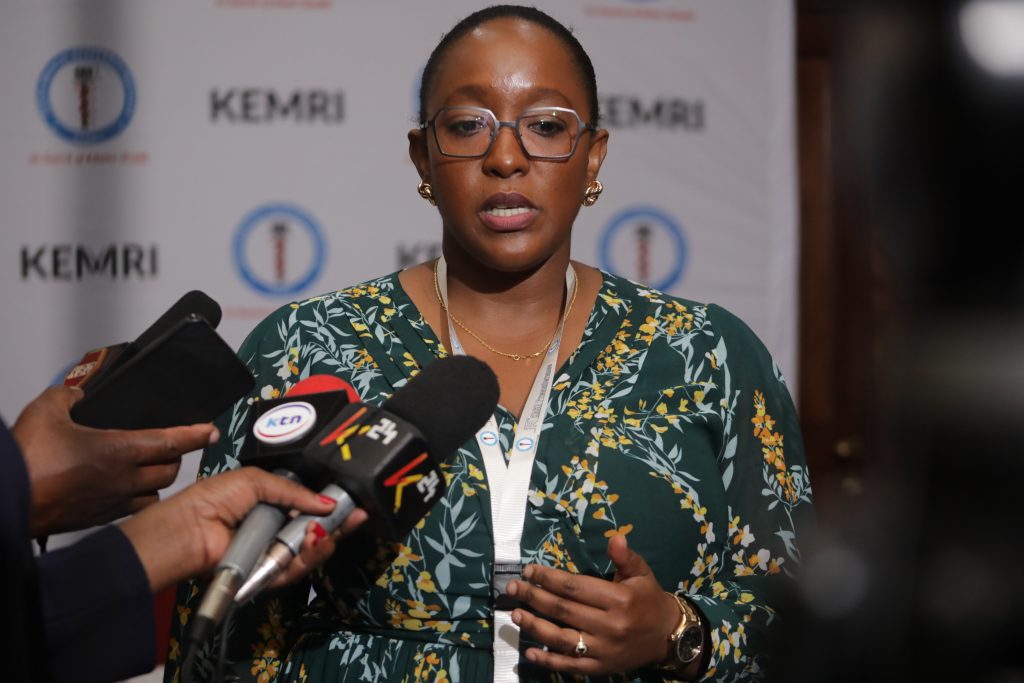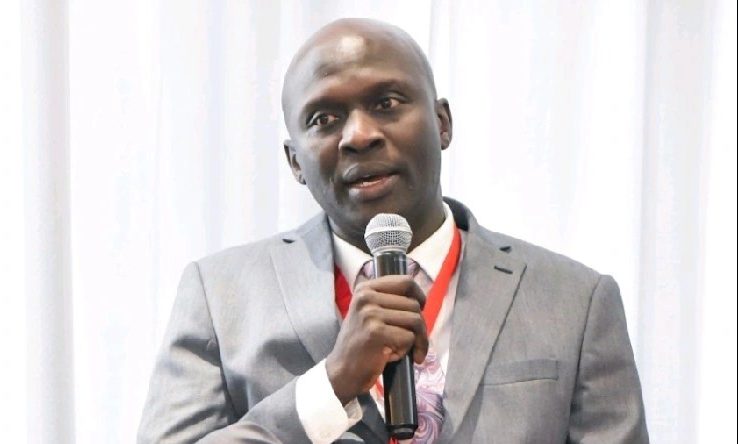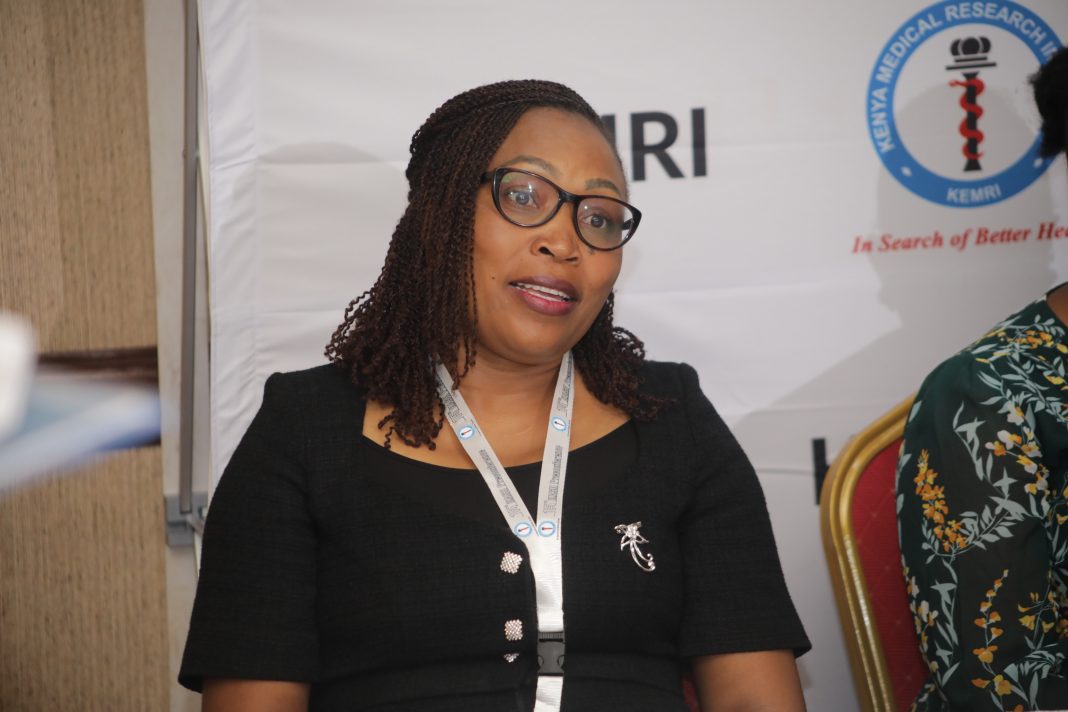By Milliam Murigi
For years, the approach to treating illnesses in Kenya has been straightforward: Panadol for headaches, Paracetamol for high temperatures, and antibiotics for infections, among others.
This one-size-fits-all model has been almost the norm. Assuming that patients with the same disease will respond similarly to the same drugs. But bodies are unique, with varying responses to drugs and different dosage requirements.
That is why this approach has not been 100 percent effective, often forcing some patients to take drugs longer than others or experience adverse side effects.
“Different bodies have different dosage requirements when it comes to treatment. Some patients find relief quickly, while others endure prolonged treatments. This is why we cannot continue treating patients with the same dosage. We need to stop generalizing medication,” says Damaris Matoke, Acting Deputy Director, Biotechnology Research Programme, Kenya Medical Research Institute (KEMRI).
According to her, this gap in treatment effectiveness needs to be closed, and the only way it can be closed is by adopting precision medicine. The World Health Organization (WHO) defines precision medicine, also known as personalized medicine, as a medical model that proposes the customization of healthcare, with medical decisions, treatments, practices, or products being tailored to the individual patient.
In precision medicine, diagnostic testing is often used to select appropriate and optimal therapies based on a patient’s genetic content or other molecular or cellular analysis.
She reveals that the rising number of diseases, coupled with the increasing cases of drug resistance, makes precision medicine a timely and critical intervention. Drug resistance, particularly in the treatment of infectious diseases like tuberculosis, malaria, and HIV, poses a significant threat to public health. Traditional treatment approaches often rely on standardized medication regimens, which may not be effective for all patients, leading to incomplete treatment and the development of resistant strains.
By tailoring treatments to an individual’s genetic makeup, lifestyle, and environment, precision medicine enhances the effectiveness of therapies, minimizes adverse drug reactions, and addresses the challenge of drug-resistant infections. This is possible because the model allows healthcare workers to identify the specific genetic factors that contribute to drug resistance in individual patients. By understanding these genetic markers, they then prescribe medications that are more likely to be effective, reducing the risk of resistance.
“The good thing about precision medicine is that it reduces the trial-and-error prescribing and it can be applied for both communicable and non-communicable diseases. If adopted, it will not only reduce the burden on our healthcare facilities but also the cost of healthcare,” she says.
According to her, this targeted approach will also minimise the misuse and overuse of antibiotics and other medications, which are primary drivers of drug resistance. By ensuring that patients receive the right medication at the right dose, precision medicine will play a crucial role in preserving the effectiveness of existing drugs and safeguarding public health.

According to Dr.Helena Musau, clinical oncologist at Kenyatta University Teaching, Referral & Research Hospital (KUTRRH), this approach has shown remarkable success in developed countries, particularly in the treatment of cancer, rare genetic disorders, and chronic diseases like diabetes.
“Precision medicine has the potential to revolutionize healthcare in Kenya by providing targeted treatments that are more effective and have fewer side effects. It can help us move away from the one-size-fits-all model of treatment that often leads to trial-and-error prescribing,” says Dr. Musau.
She reveals that by focusing on individual patient profiles, precision medicine can reduce the time and cost associated with finding the right treatment, improve patient outcomes, and potentially lower long-term healthcare costs.
Though in Kenya we are still operating, radiating, and giving chemotherapies to our cancer patients, Dr. Musau notes that in developed countries where precision medicine is being practiced, tumors are responding more effectively when patients receive personalized treatments compared to traditional approaches, regardless of the stage of the disease.
“This is happening because even cancers have subtypes. For example, breast cancer has four subtypes, and each should be treated differently. However, in Kenya, all breast cancer patients are receiving the same treatment,” reveals Dr. Musau.
Despite its potential to transform patient outcomes, health professionals have expressed significant concerns about the practicalities of integrating precision medicine into Kenya’s healthcare system. One of the primary challenges is the high cost associated with genetic testing and the development of personalized treatment plans.

“The cost of sequencing a genome, while it has decreased globally, is still prohibitively expensive for most Kenyan healthcare facilities and patients. We need to find ways to make these technologies more affordable and accessible,” notes Ibrahim Ndungu, Senior Research Scientist at KEMRI.
This is why, according to Ndungu, KEMRI is pioneering a new era of cancer care in Kenya through precision oncology with the unveiling of its state-of-the-art cancer genomics lab that is equipped with next-generation sequencing technology. The facility will empower KEMRI researchers to delve into the intricate genetic makeup of cancers prevalent in Kenya. By leveraging the power of genomics, researchers will identify specific genetic mutations driving individual cancers, offering the promise of more effective and less toxic treatments for cancer patients.
“KEMRI is utilizing this advanced technology to unlock the potential of personalized cancer care, ultimately improving patients’ outcomes and transforming the landscape of cancer treatment in the region,” says Ndungu.
In addition to cost, the lack of infrastructure poses another major hurdle. Precision medicine requires advanced laboratory facilities, sophisticated data analysis tools, and well-trained healthcare professionals, all of which are in short supply in many parts of Kenya.
“Our current healthcare infrastructure is not equipped to handle the demands of precision medicine,” says Dr. Musau. “We need significant investment in technology, training, and data management systems to make this a reality.”
Furthermore, the process of implementing precision medicine is lengthy and complex. It involves not only technological upgrades but also changes in healthcare policy, regulatory frameworks, and patient education.
Despite all these challenges, Dr. Lucas Kimanga, CEO and Founder of Elara Health Innovations Ltd, emphasizes that if the country wants to realize the full potential of precision medicine, there is a need to build an enabling ecosystem.






